Israeli FM snaps at ‘war criminal’ Erdogan for throwing support behind Lebanon
The Cradle, Jun 26 2024
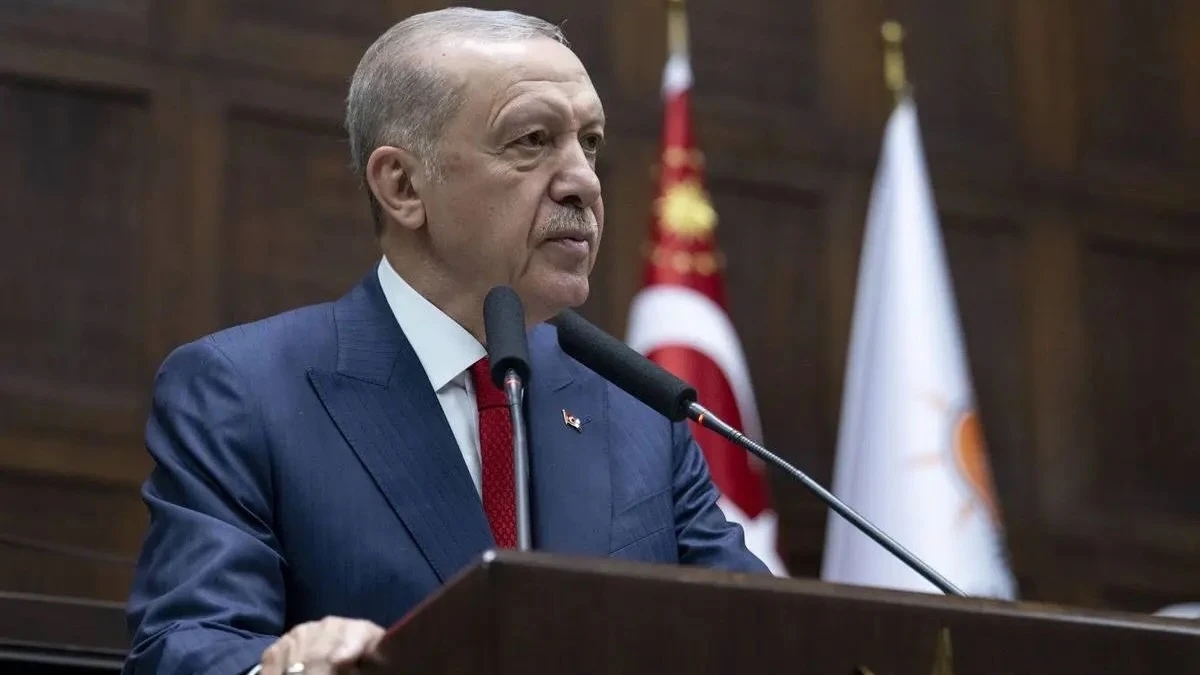
Israel’s Foreign Minister Israel Katz called Erdogan a “war criminal” in response to comments made by the Turkish head of state on Jun 26, saying Ankara would support Lebanon in a war against Israel. Katz tweeted:
Erdogan announced his support for Hezbollah against Israel’s threats. Erdogan is a war criminal who slaughters innocent Kurds across the Syrian border and tries to deny Israel its right to self-defense against a terror organization attacking from Lebanon under Iran’s orders. Be quiet and shame on you!
Erdogan, in an address to the parliamentary group of his Justice and Development Party on Wednesday, blasted western support of Israel, affirming solidarity with the Lebanese front if war with Israel ensues. The Turkish head of state said:
Israel, which has devastated Gaza, is now setting its sights on Lebanon. We see that Western powers are supporting Israel behind the scenes. Turkiye stands with brotherly Lebanese people and state and I invite other countries in the region to stand in solidarity with Lebanon as well.
Erdogan added in his address to the party that Netanyahu’s plan to allow the war to spill over across the region “will lead to a major catastrophe,” further stating that the Islamic world and West Asia nations should be at the front line in opposition to these “bloody plans.” Erdogan stated:
It is extremely dire, pathetic that states, which talk about freedom, human rights, and justice, are held captive by a madman like Netanyahu.
On Monday, Turkiye also expressed its differences with western policy when Foreign Minister Hakan Fidan said Ankara is growing impatient with the EU’s procrastination in granting Turkiye membership. Fidan said:
We have relations and are holding talks, negotiations with the BRICS countries and they’re also going through an evolution. If the EU had the will to take a step forward, our perspective on certain issues could be different. There is a military alliance within NATO, but an economic alliance has not materialized. Therefore, our search has been underway.
However, despite Erdogan’s anti-Israel rhetoric and previous sanctions implemented against Israel by Turkiye, the economic relationship between the two is still strong as trade continues between Ankara and Tel Aviv. Turkish products are being shipped to Israel via third-party nations like Greece; data released by Israel’s Central Bureau of Statistics show that Tel Aviv imported $116m of goods from Turkiye in May, regardless of Erdogan’s suspected total trade ban to Israel decreed in the same month.
Urgent solution needed to avert ‘catastrophic’ Israel-Lebanon war: Pentagon chief
The Cradle, Jun 26 2024
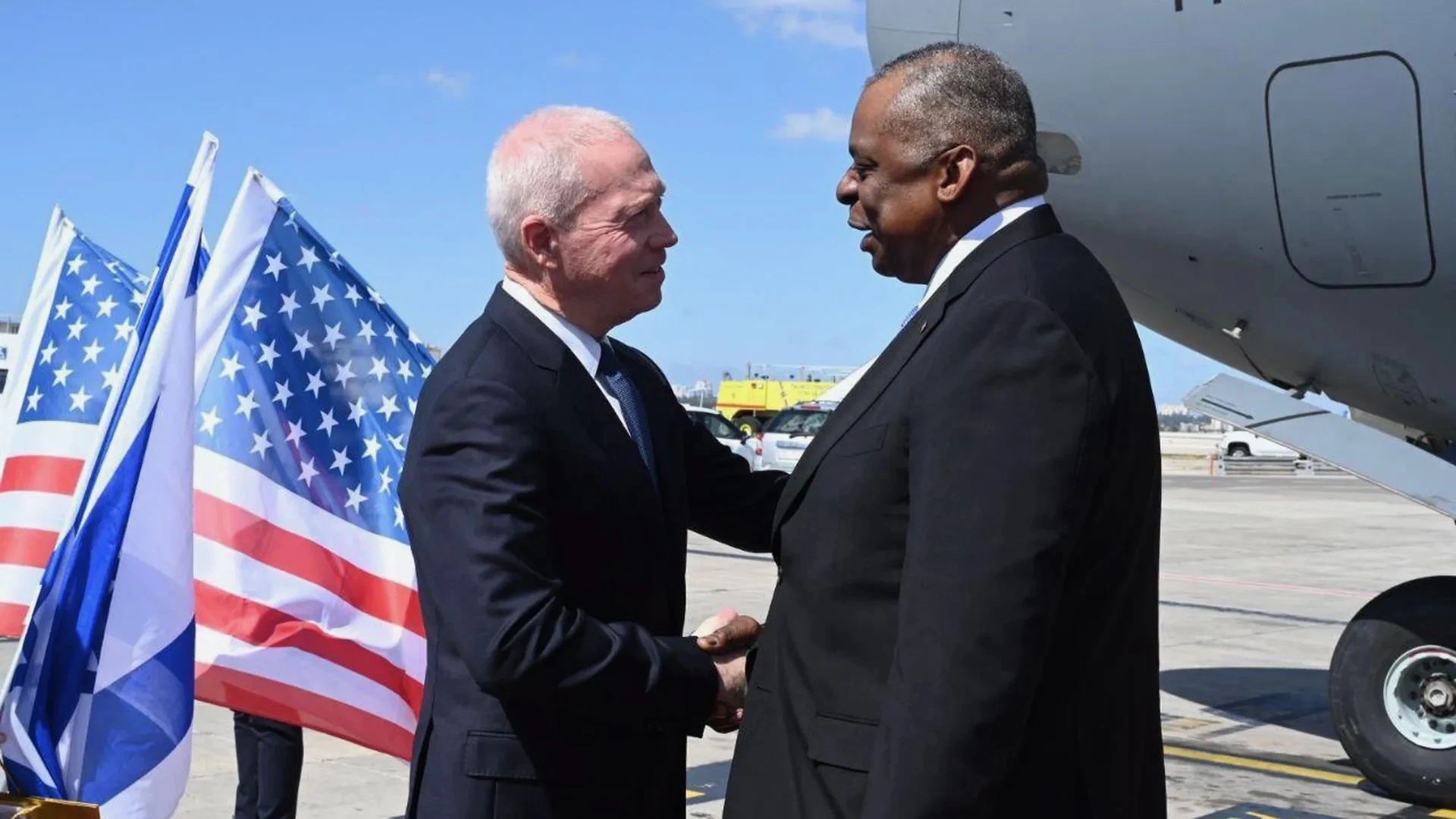
Austin said in a meeting at the Pentagon with Gallant on Jun 25 that an immediate diplomatic solution is needed to prevent a “costly war” between Israel and Lebanon. Austin said to reporters:
We’re urgently seeking a diplomatic agreement that restores lasting calm to Israel’s northern border and enables civilians to return safely to their homes on both sides of the Israel–Lebanon border.
The US official pinned the blame on the Lebanese resistance group Hezbollah’s “provocations” but added that a full-scale war would be destructive for both parties. Austin told Gallant:
Hezbollah’s provocations threaten to drag the Israeli and Lebanese people into a war that they do not want, and such a war would be a catastrophe for Lebanon and it would be devastating for innocent Israeli and Lebanese civilians. Another war between Israel and Hezbollah could easily become a regional war with terrible consequences for the Middle East, and so diplomacy is by far the best way to prevent more escalation.
Gallant also insisted on the threat of nuclear war with Iran, telling Austin:
Time is running out. The greatest threat to the future of the world and the future of our region is Iran. Now is the time to realize the commitment of the American administrations over the years to promise to prevent Iran from possessing nuclear weapons. Israel is at a crossroads that will impact the wholeMiddle East. We have to work together to retrieve the 120 captives from Gaza without exception.
Austin, replying to Gallant’s comments, said:
The US will always support Israel’s right to defend itself, and the US will always ensure that Israel has what it needs to defend itself. A third squadron of F-35 fighter jets is set to make its way to Israel. We stand together to ensure that Iran can never achieve a nuclear weapon.
These comments follow a meeting on Monday between Gallant and Blinken in which the latter urged Israel to reconsider launching an all-out war on Lebanon. However, Israeli military officials and experts continue to raise doubts about the army’s capabilities in a scenario against Hezbollah. General Yitzhak Brik has previously said:
Waging war on Hezbollah is a step tantamount to mass suicide. The Israeli army is small in size, and it is unable to win even in one front, and certainly not in six fronts at the same time.
Israel looks to expand gas exports to ease economic pain
The Cradle, Jun 26 2024
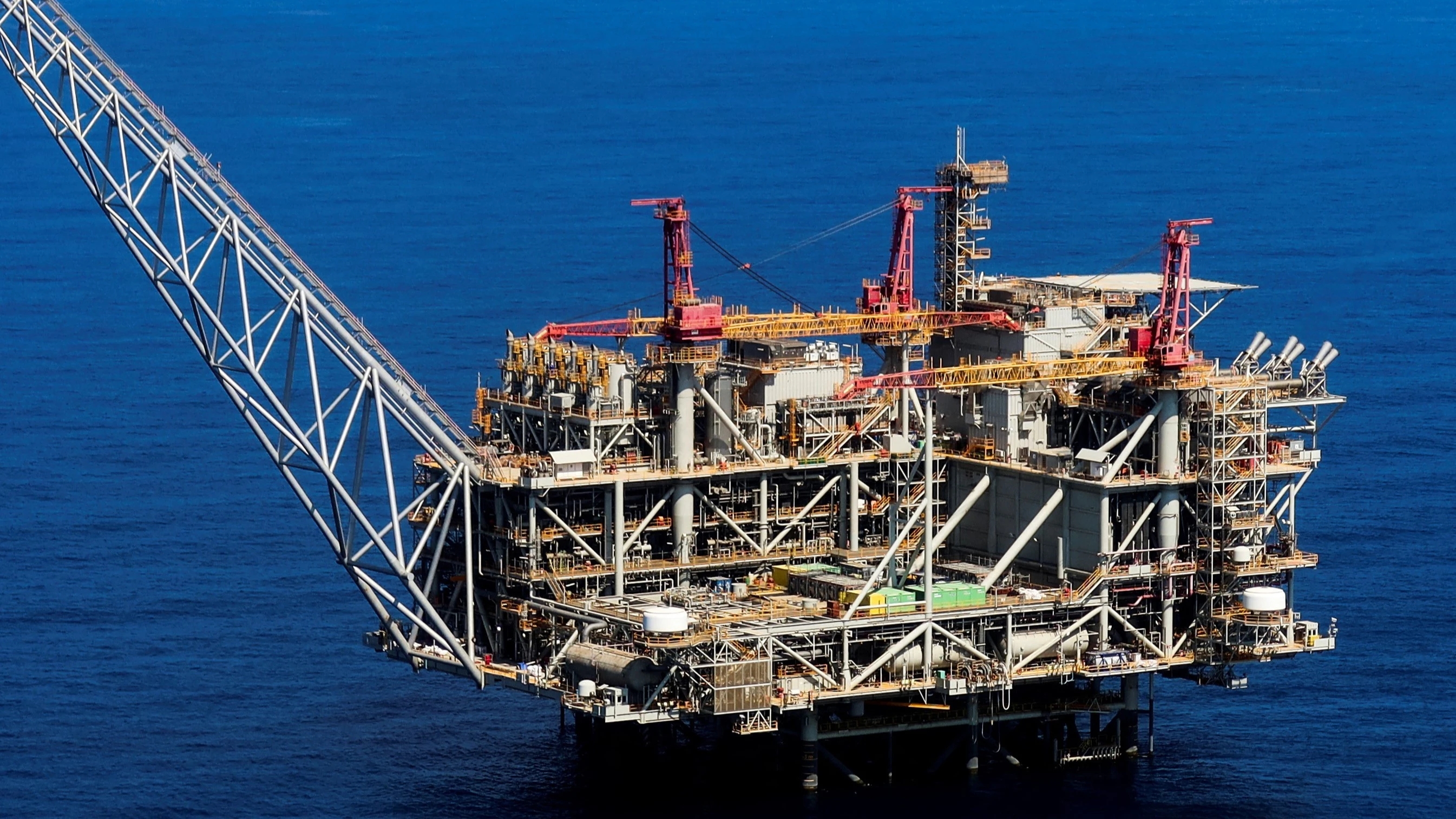
Partners in Israel’s Leviathan gas field said on Jun 26 that they plan to invest up to $500m to expand the project’s capacity, coinciding with Tel Aviv’s decision to more than double its natural gas exports. Yigal Landau, chief executive of Ratio Energies, one of the Israeli partner energy firms:
Demand for natural gas in Israel and regional markets is rising and as such we are preparing to expand production at the Leviathan project.
Israeli Energy Minister Eli Cohen announced on Wednesday that his ministry approved the export of a further 118 bcm of gas in addition to the 105 bcm initially approved. Cohen said the decision would enhance energy security and improve the economy, which has suffered significantly as a result of the multi-front war Israel is facing.
The genocidal war on the Gaza Strip and the failed attempt to eradicate the Palestinian resistance, as well as the Yemeni maritime campaign and Hezbollah’s operations against the Israeli north, have decimated Israel’s economy. In the final months of 2023, the Israeli GDP plummeted by nearly 20%. Revenues at key ports such as the southern port of Eilat have also fallen significantly, while in the north, education, local business and economy have collapsed. Hezbollah has forced tens of thousands of settlers to evacuate settlements that make up the area now being referred to by Hebrew media as a “buffer zone” for the Lebanese resistance.
Israel’s vow to boost energy exports coincides with increased fears lately over a flare-up on the Lebanese border, as Israel has recently threatened an expanded war against Hezbollah and has announced that battle plans for such an attack have been approved. An escalation of this sort would put Israel’s energy security at grave risk. Over the past week, Hezbollah released two videos that show it possesses the precise coordinates for numerous highly sensitive Israeli targets, which can be struck in the event that a full-scale war is launched against Lebanon.
In the first video with footage by Hezbollah surveillance UAVs, released on Jun 18, the main commercial platform of Haifa port is seen, as well as Haifa’s main power station, petrochemical storage sites, and massive oil tanks. Israeli oil refineries are also shown to be among Hezbollah’s targets in the second video, released on Jun 22. Hezbollah is also capable of attacking gas infrastructure in the Mediterranean. It has previously threatened to do so during tensions between Lebanon and Israel in the buildup to the maritime gas exploration agreement reached indirectly between the two governments in 2022.
Israeli army legitimizes murder of journalists in Gaza: Report
The Cradle, Jun 26 2024
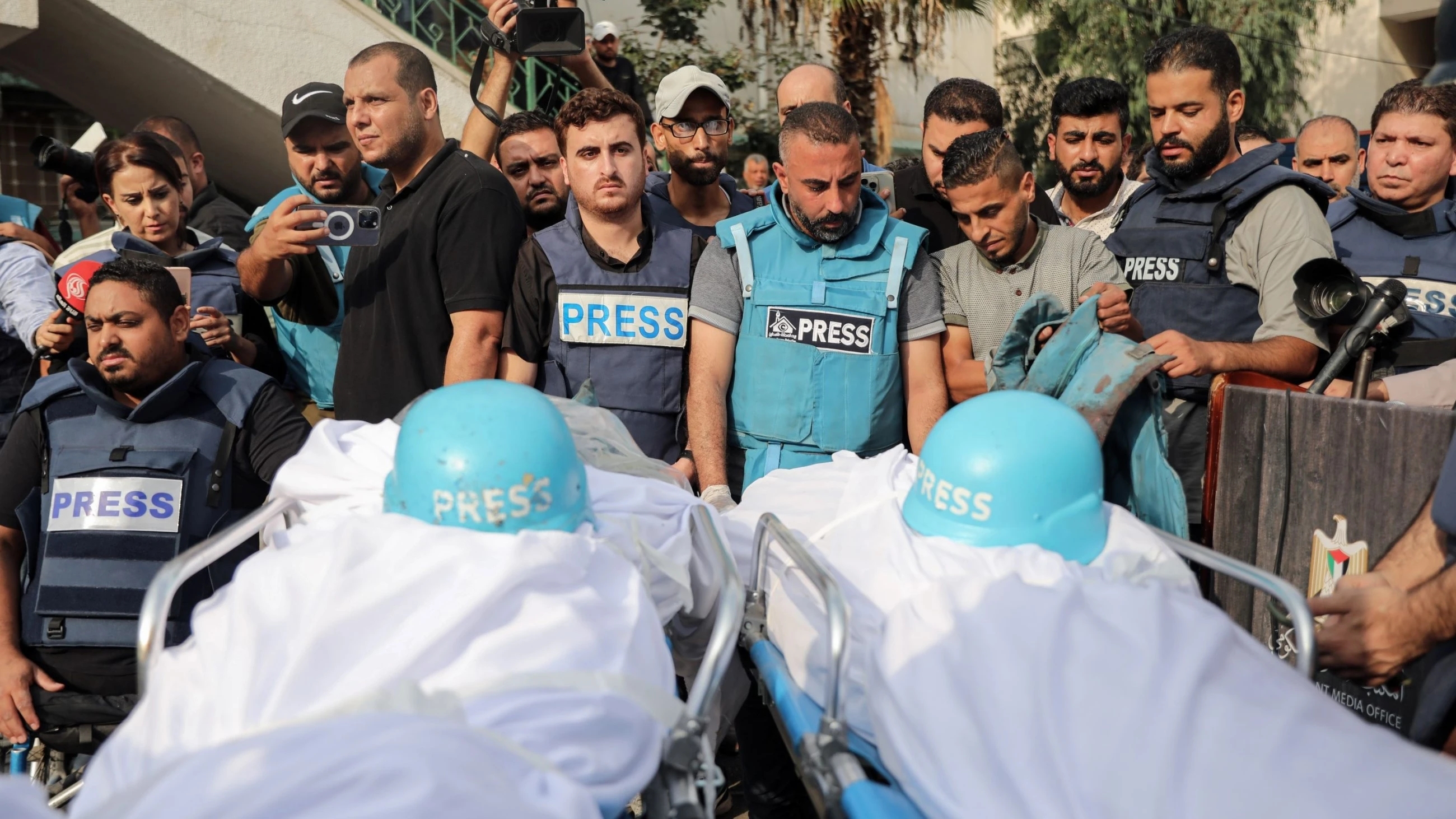
The Israeli army views media outlets affiliated with the resistance as legitimate military targets, according to an investigation by The Guardian released on Jun 25. The investigation is part of what is called the Gaza project, led by the France-based Forbidden Stories NGO, which has analyzed the killing of journalists in the Gaza Strip since the beginning of the Israeli war in October.
The US-based Committee to Protect Journalists (CPJ) places the number of journalists killed in Gaza since the start of the war at a minimum of 103. According to CPJ, 30% worked for media outlets affiliated with Hamas. The Guardian investigation identified at least 23 dead journalists employed by the largest Hamas-linked outlet, the Al-Aqsa media network.
When asked about the number of journalists belonging to the Al-Aqsa network who have been killed, a senior Israeli army spokesman said there is “no difference” between working for the outlet and being a member of Hamas’ armed wing, the Qassam Brigades. Adil Haque, professor of law at the US Rutgers University, said:
It’s a shocking statement, a complete misunderstanding or just a willful disregard for international law.
The Al-Aqsa network’s offices have been bombed by Israeli jets during previous assaults on Gaza. In 2019, Netanyahu signed an order using broad legal powers to designate the network, which is also under US sanctions, as a terrorist organization. The designation was made under domestic Israeli law, which legal experts said was not a “blank cheque” to kill journalists affiliated with the network. Sources cited by The Guardian say Al-Aqsa’s offices were evacuated at the start of the current war in Gaza due to the belief that they would be targeted.
One Israeli source said there has been “a permissive approach to targeting across” the army when it came to the war. Another source familiar with legal advice given to the Israeli army said journalists affiliated with Hamas exist within a “grey zone” and that there is a “problematic view” in the military that “whenever there’s someone getting a salary ultimately from Hamas,” they become legitimized as a target. According to the CPJ, over 75% of all journalists who died in the year 2023 were killed by the Israeli military in Gaza.
Many of these journalists have had nothing to do with Hamas. Hamza Dahdouh, son of renowned Al Jazeera bureau chief Wael Dahdouh, was killed in an Israeli airstrike on the Gaza Strip on Jan 7. Dahdouh was killed alongside another journalist, Mustafa Thuraya, as they were reporting on the damage caused by an Israeli airstrike on a residential area between the southern cities of Khan Yunis and Rafah. Several journalists have also been killed in southern Lebanon while covering Israeli bombardment there since the beginning of the war.
Norwegian fund drops stake in US construction giant over Palestinian home demolitions
The Cradle, Jun 26 2024
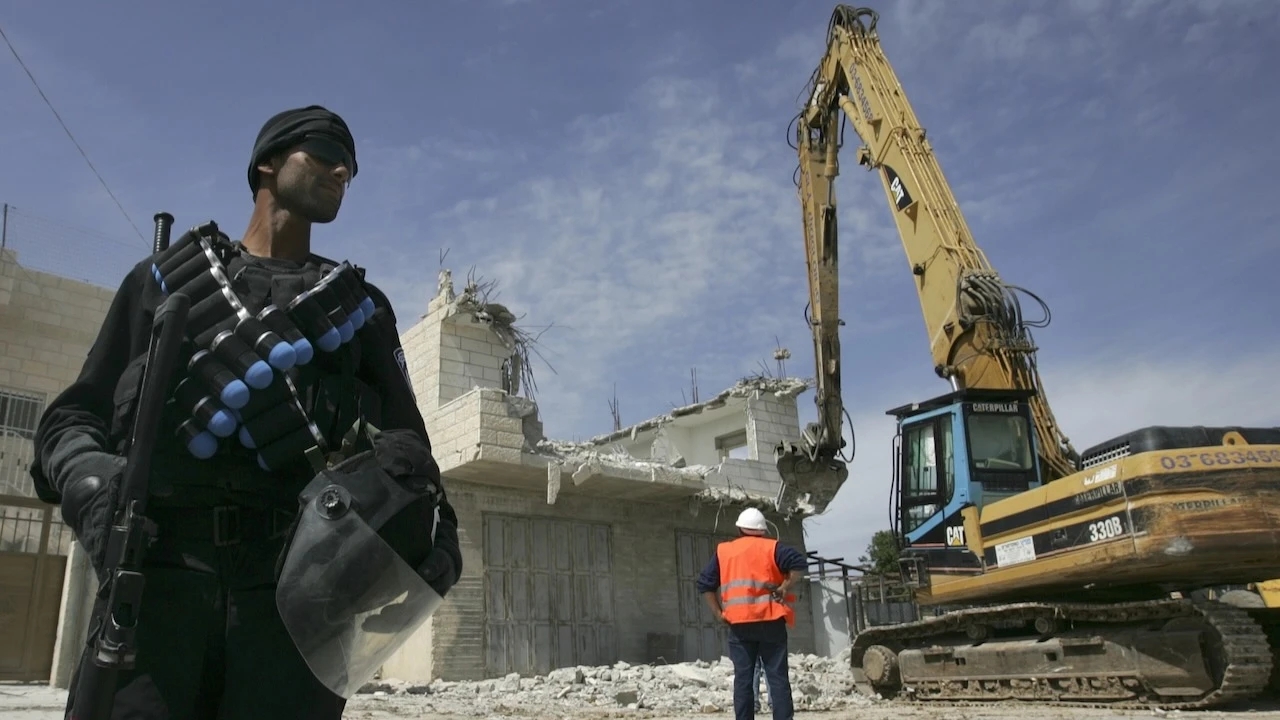
Norway’s largest private pension fund, Kommunal Landspensjonskasse Gjensidig Forsikringsselska (KLP), has dropped its stake in US construction giant Caterpillar, citing “concerns” the company is contributing to the destruction of Palestinian homes in the occupied West Bank. Kiran Aziz, the firm’s head of responsible investments, told Bloomberg:
Although Caterpillar has shown itself willing to engage in a dialogue with KLP, the company’s responses failed to credibly substantiate its ability to actually reduce the risk of violating the rights of individuals in situations of war or conflict, or of violating international law. KLP dropped $69m worth of Caterpillar shares and bonds earlier this month over the company’s equipment being used to demolish Palestinian homes and infrastructure to clear the way for Israeli settlements.
She also cited allegations that Caterpillar equipment is being used by the Israeli army in Gaza. The UN OHCHR last week named Caterpillar among several corporations supplying Israel with military equipment and urged investors with stakes in these companies to “take action.” The UN statement reads:
These companies, by sending weapons, parts, components, and ammunition to Israeli forces, risk being complicit in serious violations of international human rights and international humanitarian laws.
The UN report also urged western financial institutions and investing firms like Bank of America, BlackRock, Citigroup, JP Morgan Chase, Harris Associates, Morgan Stanley, State Farm Mutual Automobile Insurance, and Wells Fargo & Company, among many others, to “take action” and prevent funding the mass killing of Palestinians in Gaza. The decision by KLP comes one month after the Norwegian government officially moved to recognize a Palestinian state alongside Spain and Ireland. Foreign Minister Espen Barth Eide said on May 28:
For more than 30 years, Norway has been one of the strongest advocates for a Palestinian state. Today, when Norway officially recognizes Palestine as a state, is a milestone in the relationship between Norway and Palestine.
On Wednesday, Palestinian media reported that the Israeli army demolished nine homes in the occupied West Bank, including Jerusalem, and another in the Palestinian territories occupied since 1948. According to the Wall and Settlement Resistance Commission, Israel conducted “47 demolitions, affecting 66 facilities, including 35 inhabited homes, five uninhabited, and 15 agricultural and other facilities,” across the West Bank in May.
Key Israeli port city comes under fire from resistance in Iraq
The Cradle, Jun 26 2024
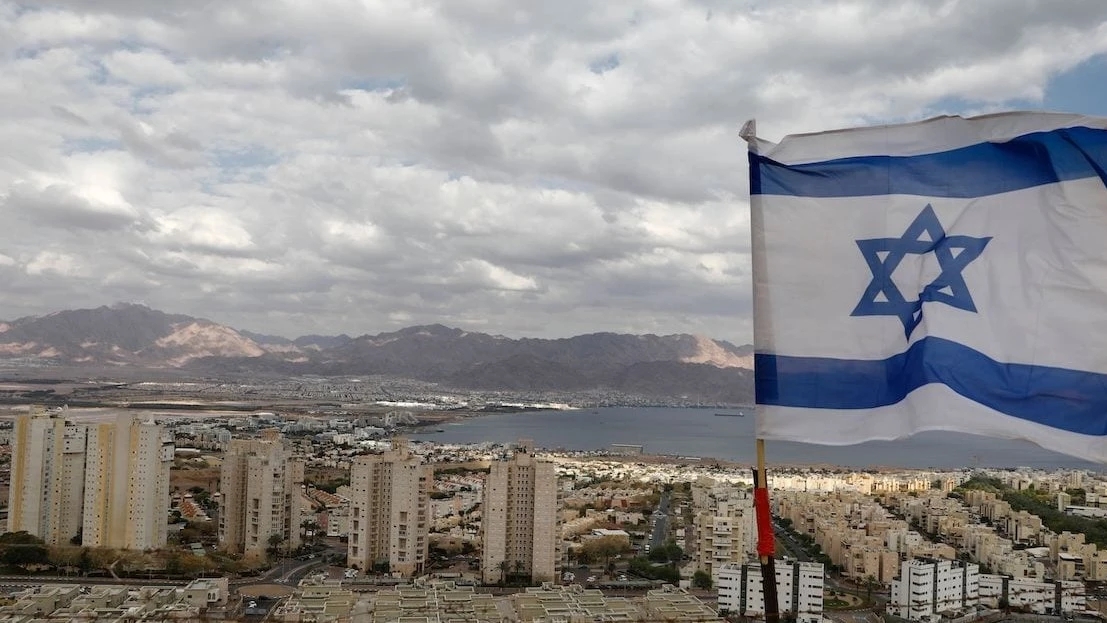
The Islamic Resistance in Iraq (IRI) announced an attack on Jun 26 on a “vital target” in the southern Israeli port city of Eilat. IRI said in a statement:
In response to the massacres committed by the usurping entity against Palestinian civilians, including children, women and the elderly, the Mujahideen of the Islamic Resistance in Iraq targeted this morning, Wednesday Jun 26 2024, a vital target in Umm al-Rashrash (Eilat) in the occupied territories, using drones.
Video footage circulating Hebrew media showed interceptions taking place over Eilat early on Wednesday as sirens sounded following the successful infiltration of a drone.
The IRI announced on Jun 24 a drone attack on a “military target” in the city of Haifa. It said one day earlier, on Jun 23, that its drones targeted a “vital” location on the coast of the Dead Sea. The resistance coalition has continued to carry out frequent attacks against sites within Israel since it halted operations against US bases in Iraq and Syria in late January following the killing of three US soldiers in a drone attack on the Syrian–Jordanian border. According to Al Mayadeen:
The occupation has not allowed the publication of information regarding the operations of the Iraqi resistance.
The IRI has also boosted cooperation recently with the Armed Forces of Yemen’s Sanaa government, who have imposed a naval blockade on Israeli ships or ships bound for Israeli ports in solidarity with the Palestinian people and resistance in Gaza. Yemen’s Armed Forces announced early on Jun 23 that it targeted five ships in two joint operations with the IRI. The operations targeted ships in Haifa port and others that violated the Yemeni blockade. Early this month, Yemen announced its first joint operations with the IRI. Yemeni army spokesman Yahya Sari said on Jun 6:
The Yemeni Armed Forces carried out two joint military operations with the Islamic Resistance of Iraq. The first targeted two ships that were carrying military equipment in the port of Haifa, and the second targeted a ship that violated our decision to ban entry into the port of Haifa in occupied Palestine.
Israeli army hopes to weather recruitment crisis with new division for retirees, Haredim Jews
The Cradle, Jun 26 2024
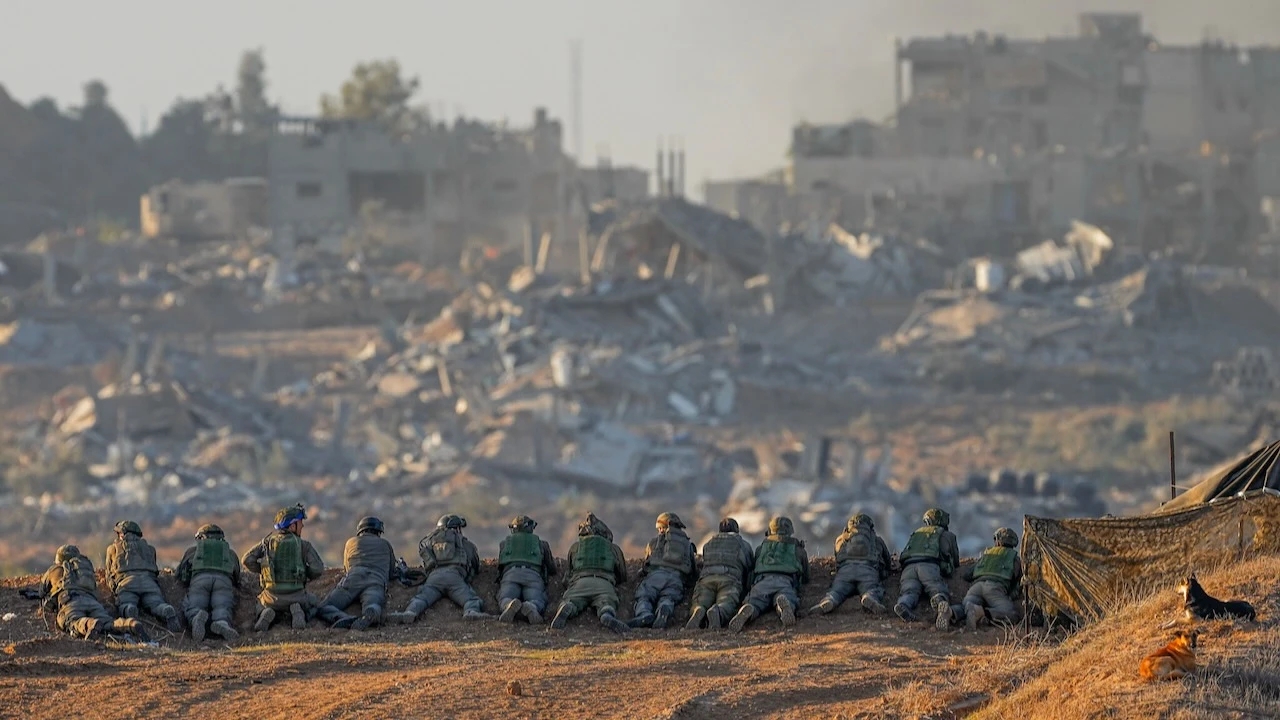
In the face of a severe enlistment crisis and a growing number of reservists refusing to return to Gaza, the Israeli military is looking to create a new brigade composed of veterans and volunteers, including ultra-Orthodox Jews. According to a report by Walla! published on Jun 26, the Israeli army has initiated the formation of Brigade 96, also known as “David’s Brigade,” which officials expect to have around 40k fighters. News of the brigade’s creation comes one day after Israel’s High Court ruled that eligible male haredim must be immediately drafted into service, ending a decades-long blanket exemption for haredi students. The ruling states:
We call on the government and the defense minister to implement the decision without delay, to comply with the High Court’s order, and to work immediately to draft yeshiva students.
The legal decision caused great turmoil within Israel’s brittle government coalition, as Netanyahu’s party earlier this month made moves to delay the mandatory draft of haredi Jews. A statement from Likud reads:
It’s puzzling that the High Court, which for 76 years refrained from enforcing yeshiva student enlistment through a ruling, is doing so now, on the eve of completing the historic conscription law and when ultra-Orthodox enlistment was at an all-time high. Opposition leaders who supported the court’s decision are not interested in ultra-Orthodox enlistment but in toppling the government.
The claim from Likud echoes a similar statement made recently by Sara Netanyahu, the premier’s wife, in which she accused army leaders of seeking to carry out a coup against her husband. For the past several weeks, army leaders have been warning about the need to increase Israel’s fighting force nearly nine months into the genocidal war in Gaza and as the country prepares to confront Hezbollah in Lebanon head-on. The recruitment crisis has been made worse by a growing number of reservists who refuse to return to Gaza, saying that the Israeli government is “endangering our lives and the lives of innocents in Rafah.”
Iran’s presidential hopefuls hold last debate ahead of snap elections
The Cradle, Jun 26 2024
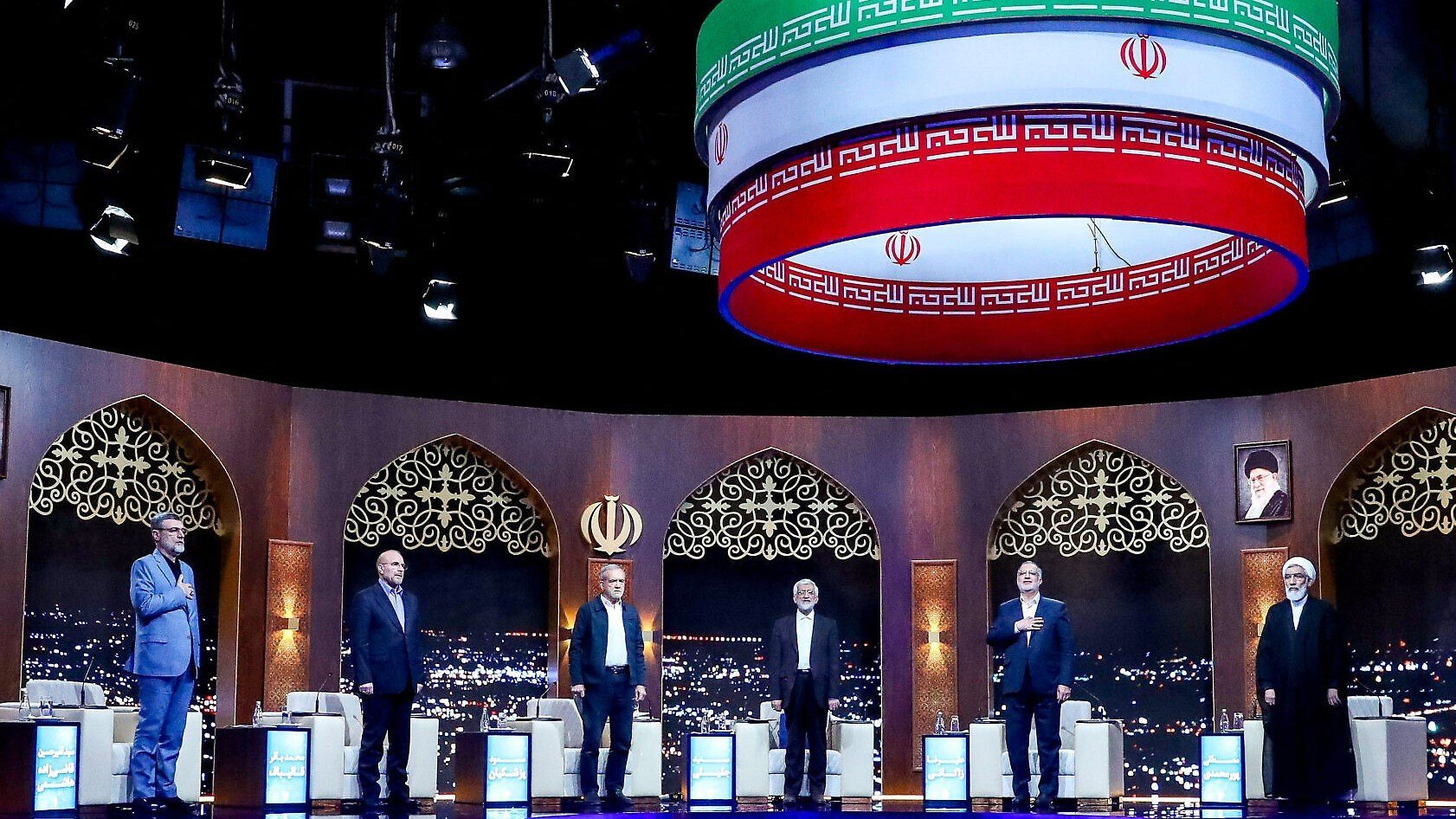
Presidential candidates in the Islamic Republic of Iran held a debate on Jun 25, two days ahead of a snap election that will determine a successor to Ebrahim Raisi, who died in a sudden helicopter crash last month. The candidates who have been chosen by Iran’s Constitutional Council from 80 applicants seeking the Iranian presidency are Saeed Jalili, Alireza Zakani, Amir Hossein Qazizadeh Hashemi, Mostafa Pourmohammadi, Mohammad Baqer Qalibaf, and Masoud Pezeshkian.
Each taking an equal amount of time, the candidates presented their visions for Iran and solutions for its economic, political, and cultural issues. The leading theme of the debate was Iran’s economic situation. Jalili called during the debate for strengthening the countryside economically, explaining:
26% of Iranians are farmers and rural residents, but they do not receive a large share of the budget. Any Iranian can improve the country’s economy, provided that we look comprehensively at all of the country’s capabilities and that everyone participates in its growth and development.
Qalibaf, on the other hand, vowed during his allotted time to continue on the path of Raisi’s economic roadmap. He said he would complete the former president’s projects, which focused on developing ties with regional countries, forming alliances, and safeguarding Iran’s interests. Pezeshkian discussed internal and external issues that Iran faces, including gaps between the government and the people and harsh western sanctions, which have been imposed on the country for decades. He said:
I came today to rid the people of the sanctions by mixing diplomacy with force and negotiations in the arena.
He also vowed to advocate for farmers and women, remove obstacles in the way of modernization, and limit immigration. Pezeshkian has been described by some as leaning more towards the vision and policy of former president Hassan Rouhani, who negotiated the 2015 nuclear deal with Washington. Zakani promised to confront economic corruption and stressed the “rejection of compromise and injustice.” Hashemi also vowed to continue on the path of the former presidency, praising Raisi and his foreign minister, Hossein Amir-Abdollahian, who died with him in the crash on 19 May. He said:
The danger of the epidemic of the Rouhani government exists, and there is no solution except to build the country on the path of Martyr Raisi.
Pour Mohammadi vowed to work for Iran’s interests “in light of the values of the Islamic Revolution and its leader.” The vote is scheduled to be held on Jun 28. Iranian Supreme Leader Ali Khamenei said on Jun 25 during an event for the Islamic holiday of Ghadeer:
The key to national pride in the elections lies in maximum public participation and the election of the most qualified candidate. The reason for the insistence and emphasis on maximum participation in the elections is that the most important impact of a high turnout is that it brings honor to the Islamic Republic. The Islamic Republic has enemies. One thing that helps the Islamic Republic overcome its enemies is the elections. If a good turnout is seen in these elections, it will make the Islamic Republic proud.
The Supreme Leader also blasted those who believe “all ways to progress pass through America,” and warned some politicians about “sticking to famous countries and powers.”